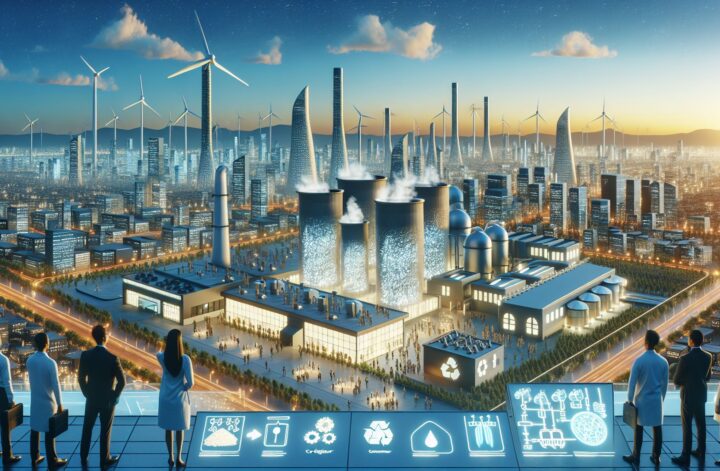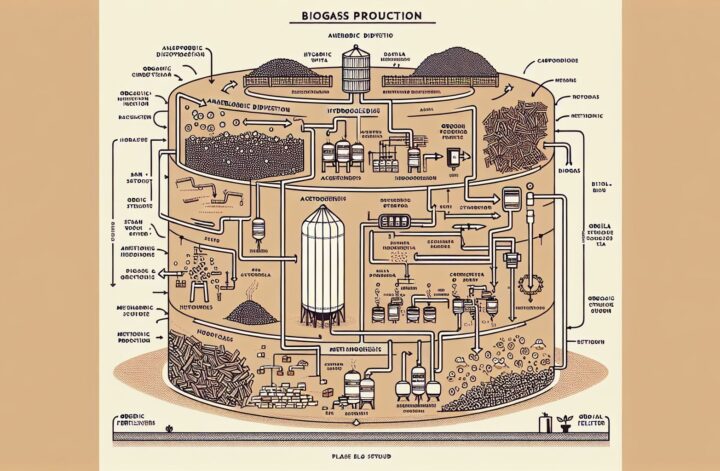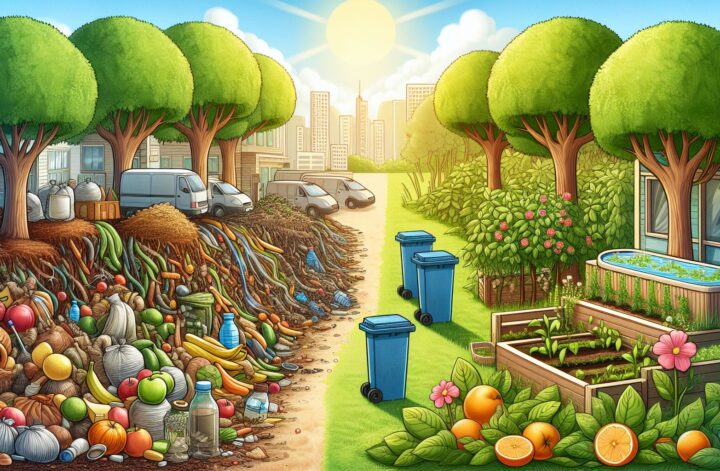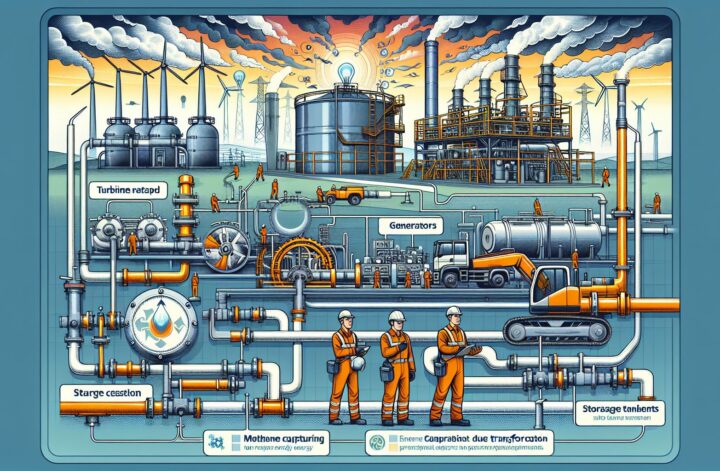Our world is crying out for renewable energy solutions and effective waste management techniques to combat the repercussions of rapid industrialization and climate change. At the epicenter of this conflict lies co-digestion – the innovative approach for waste management and energy production. It provides an efficient method for renewable energy production and waste treatment via converting organic waste into energy-rich biogas, thereby promoting circular economy concepts.
What is Co-Digestion?
Co-digestion refers to the anaerobic digestion process wherein multiple organic waste streams are treated together, maximizing the efficiency of biogas production^1^. Co-digestion optimizes the waste treatment process and improves the quality and quantity of biogas generated. By simultaneously addressing waste management and renewable energy production, this method has a considerable positive impact on environmental sustainability.
The Co-Digestion Process
The process of co-digestion involves hydrolysis, acidogenesis, acetogenesis, and methanogenesis.
The complex substrates undergo hydrolysis to form simpler molecules. Then begins acidogenesis, where acidogenic microorganisms convert simple organic matter into volatile fatty acids and alcohol. The next step, acetogenesis, transforms the products into acetate, hydrogen, and CO2. Finally, methanogenesis results in the conversion of these products into methane, CO2, and water[^2^].
Co-digestion is generally performed in an anaerobic digester designed for optimized gas collection and the containment of anaerobic microorganisms. The process results in the production of biogas, primarily composed of methane and carbon dioxide, and biosolids or digestate.
Advantages of Co-Digestion
Co-digestion offers numerous benefits, making it a popular choice for renewable energy production and organic waste treatment.
1. Enhanced Biogas Production:
Co-digestion results in higher biogas output compared to the digestion of single substrates. This is due to the optimal balance of nutrients that improves the efficiency of microbial activity, resulting in enhanced methane yield[^3^].
2. Waste Management:
It provides a sustainable solution for waste treatment by efficiently recycling organic waste, reducing the amount of waste going to landfill and thereby decreasing greenhouse gas emissions.
3. Nutrient-Rich Digestate:
The by-product of co-digestion, digestate, is a nutrient-rich organic material. The digestate is a valuable soil conditioner that can enhance soil fertility and productivity.
4. Reduction of Greenhouse Gasses:
Organic waste in landfills generates methane, a potent greenhouse gas. By processing this waste through co-digestion, methane emissions are reduced, contributing to slowing climate change.
Challenges in Co-Digestion
Despite its numerous benefits, co-digestion also comes with several challenges. The main issue is the inhibition of anaerobic digestion due to the mix’s variable composition and toxicity risk. For instance, ammonia toxicity and sulfide toxicity can inhibit methanogenic organisms, impeding biogas production and increasing the risk of digester failure.
To overcome these challenges, a process control system that adjusts the organic loading rate and regulates the hydraulic retention time and solid retention time is essential. Additionally, supplementing the process with trace elements can stimulate and maintain healthy microbial activity.
Future of Co-Digestion
Co-digestion is an excellent demonstration of how technology can lead to a sustainable future. Its ability to generate renewable energy while managing organic waste places it at the frontline of sustainable solutions.
With advancements in anaerobic digestion microbiology, we can expect to see more efficient co-digestion systems, higher biogas yields, and more successful waste management strategies in the future.
Our world requires innovative solutions like co-digestion to halt the adverse effects of climate change and unsustainable practices. By optimizing the use of organic waste, we can simultaneously address our energy needs and waste management, paving the way for safer, cleaner, and more sustainable communities.
[^2^]: Anaerobic Co-Digestion of Biomass for Methane Production
[^3^]: Co-digestion of organic waste




